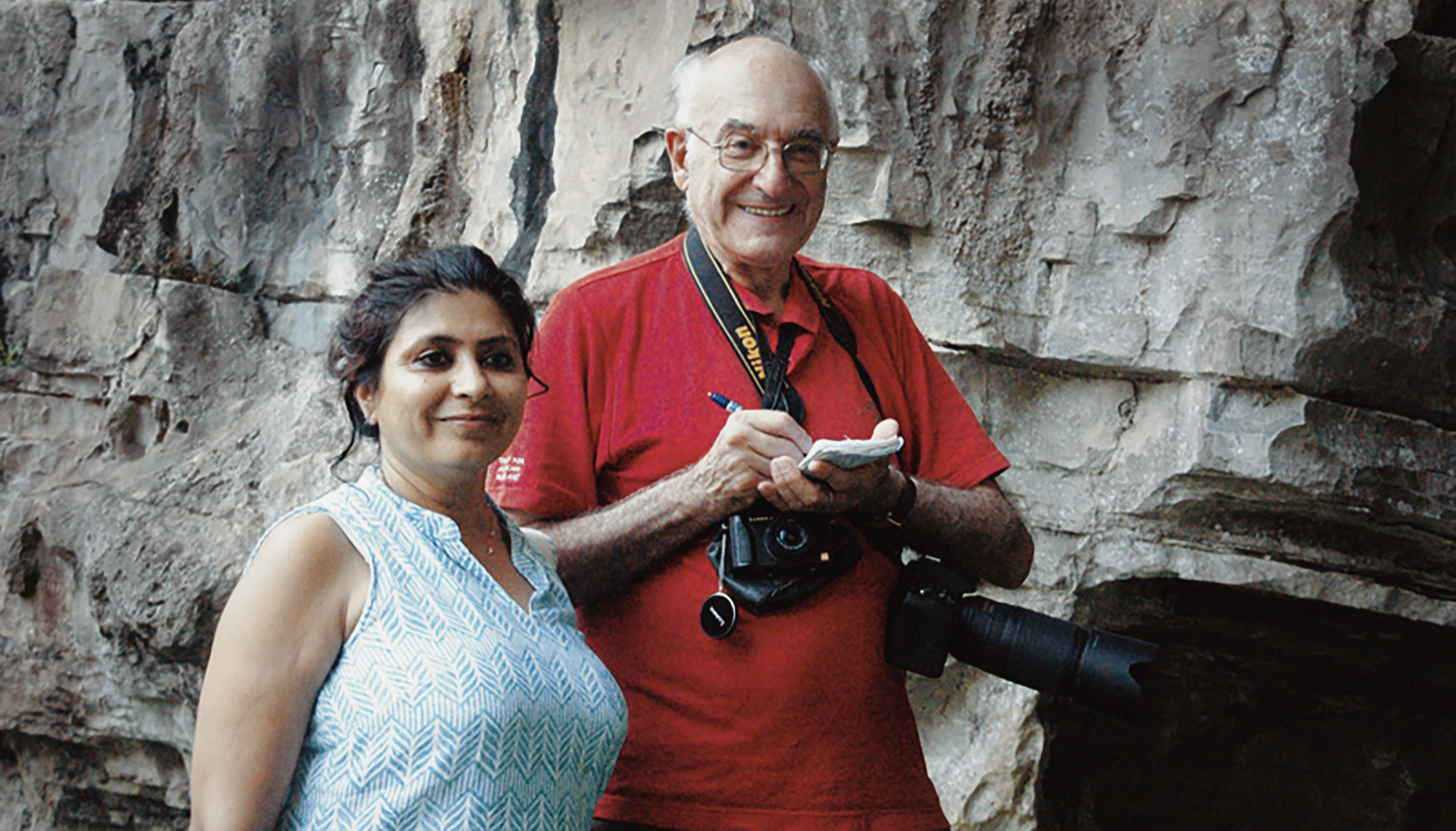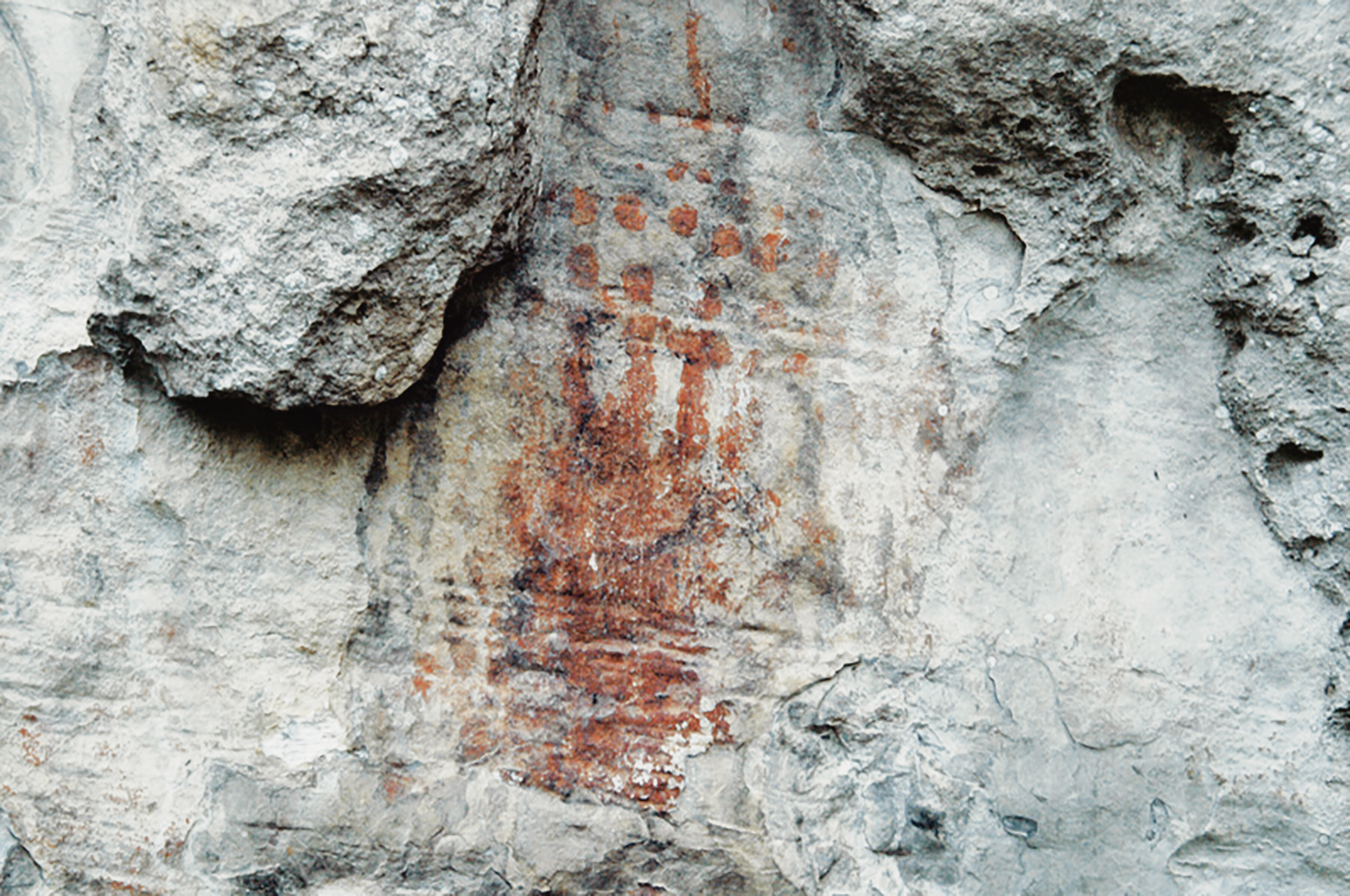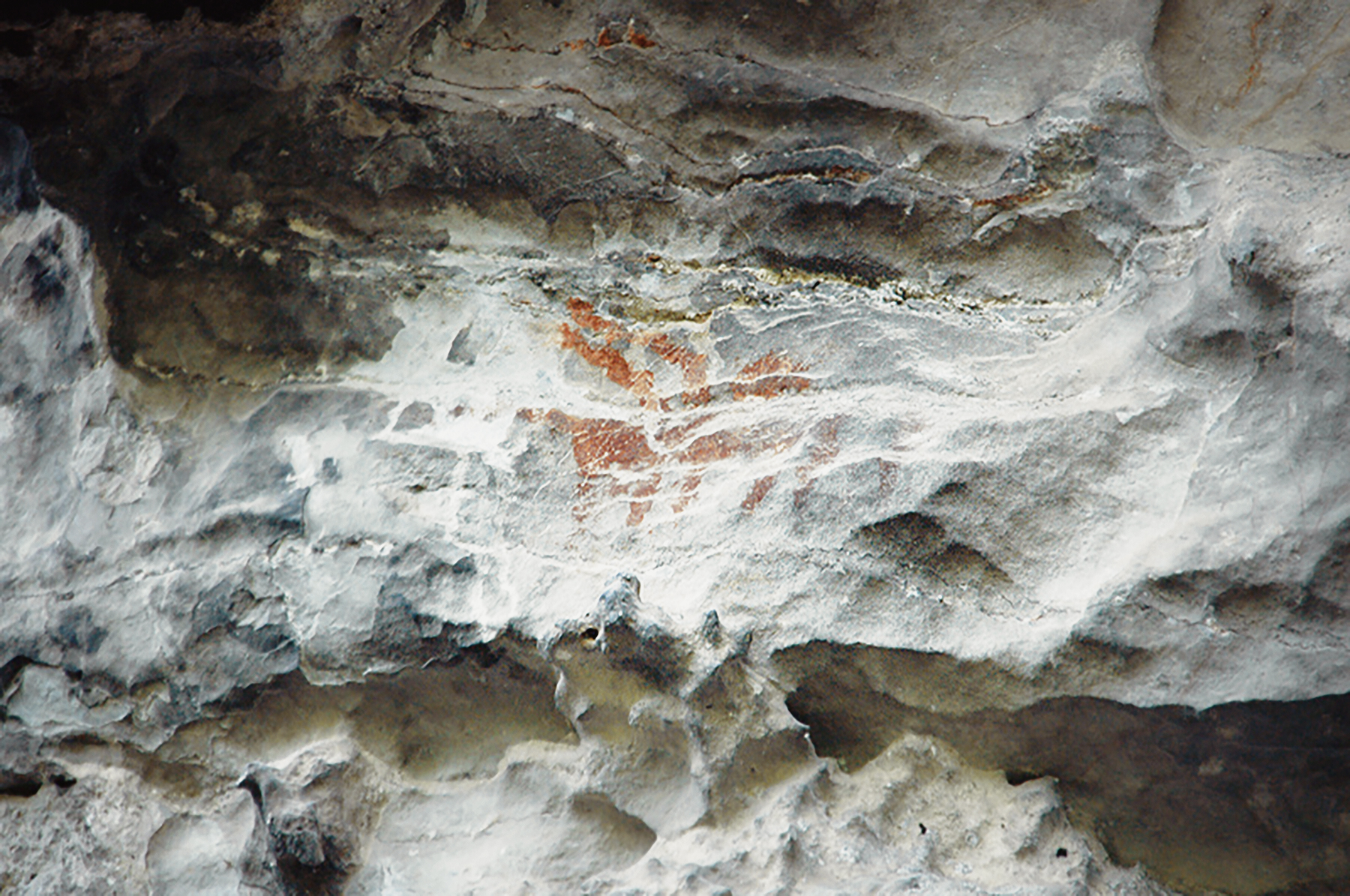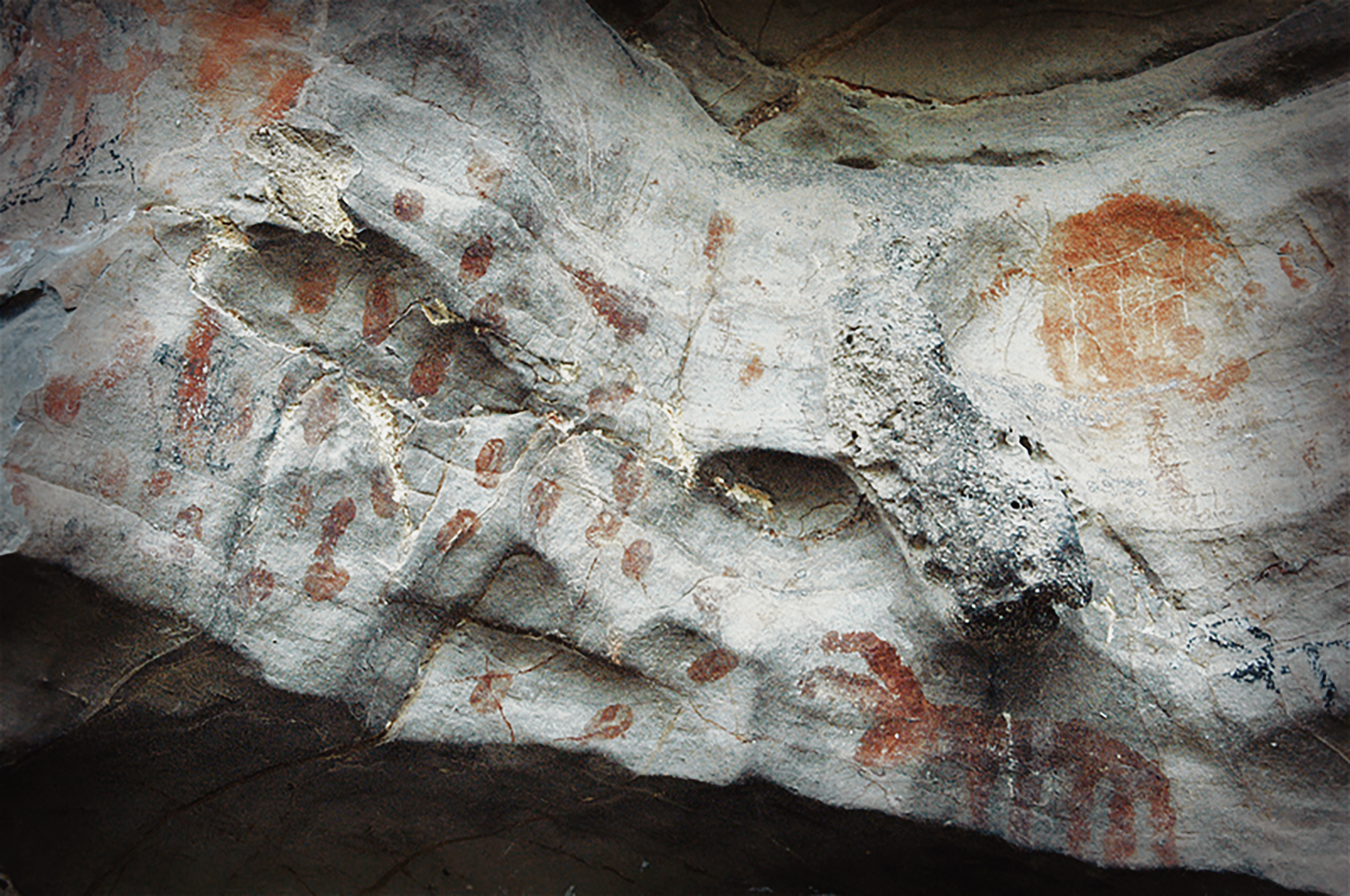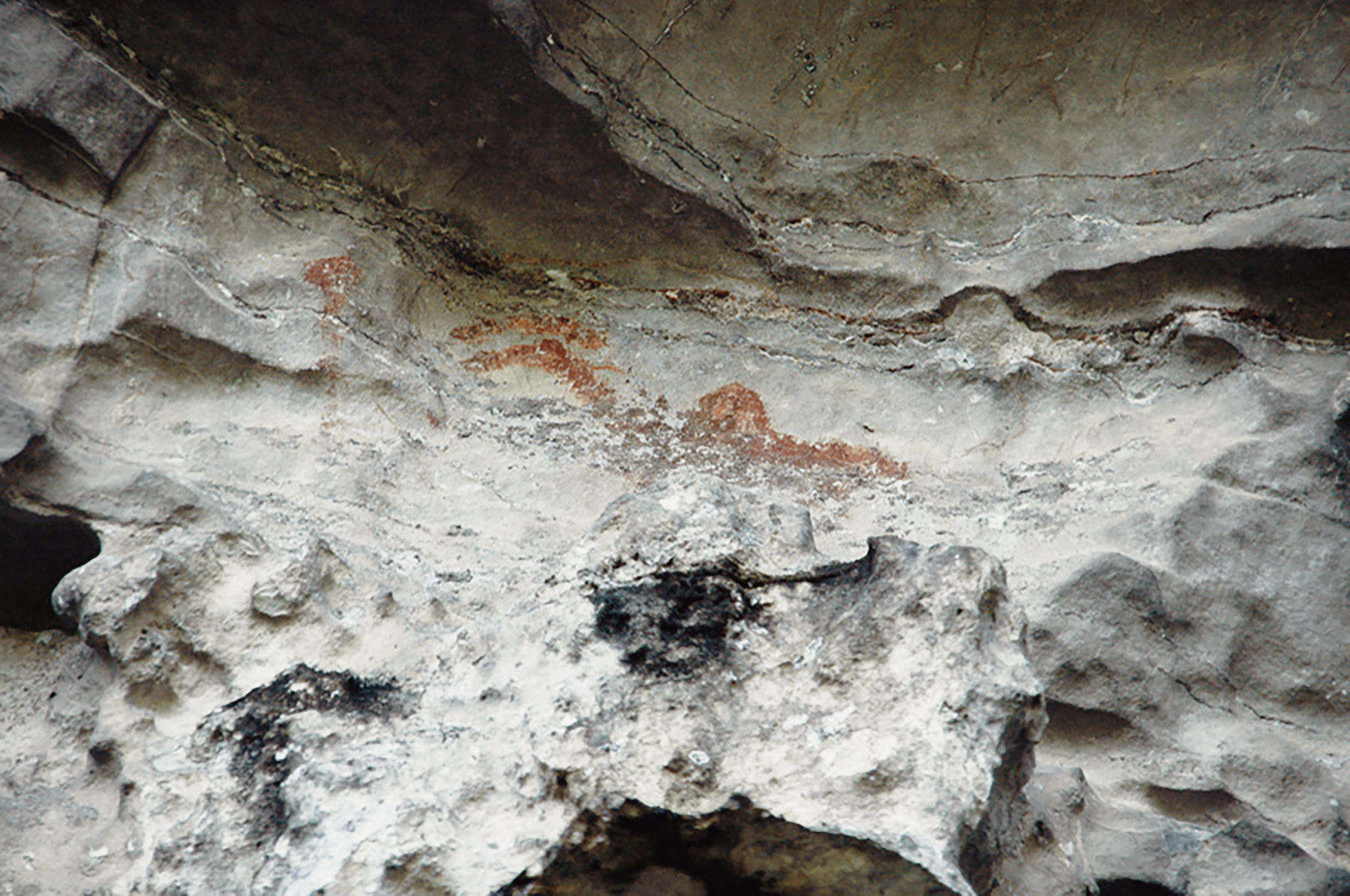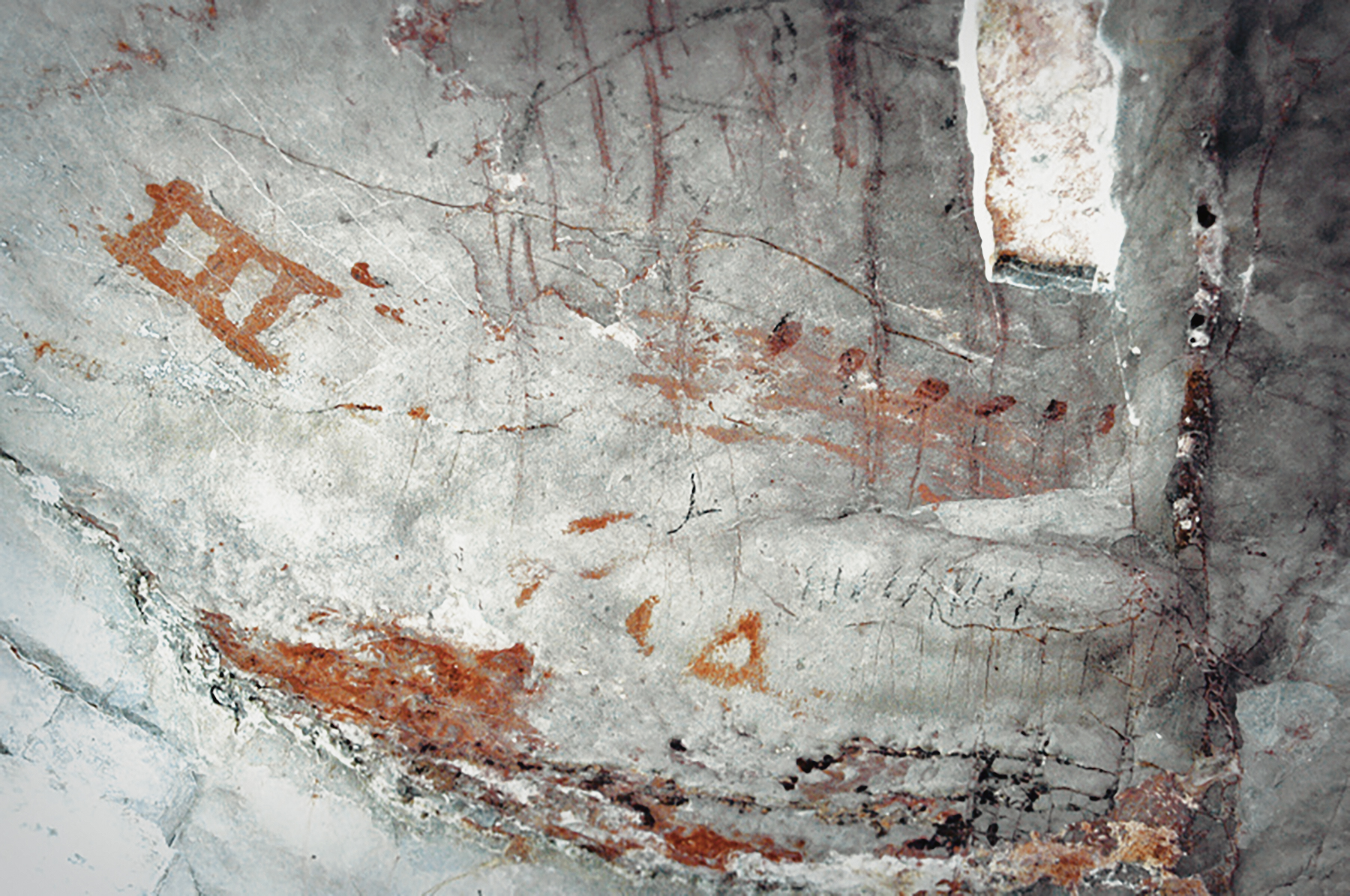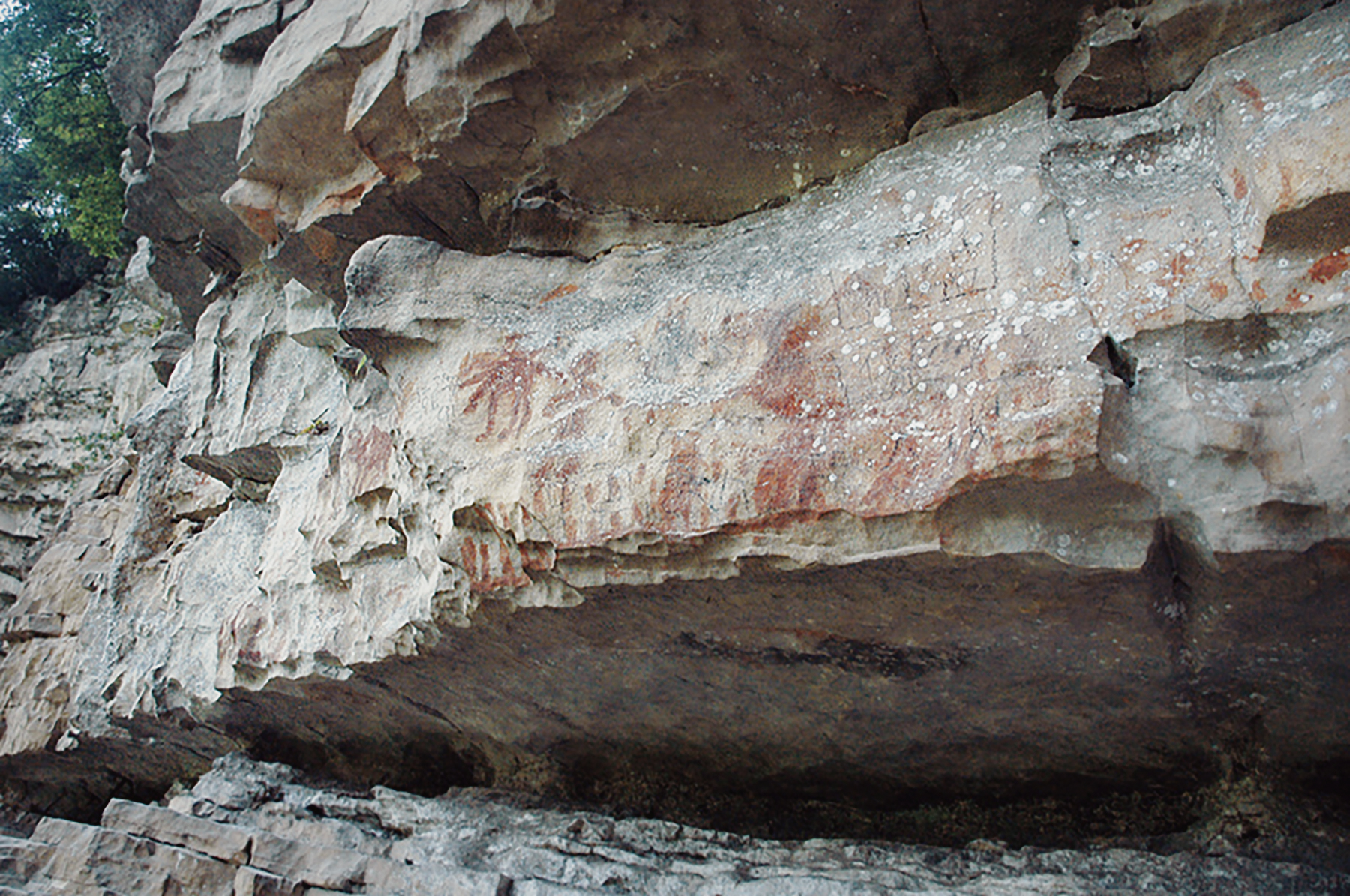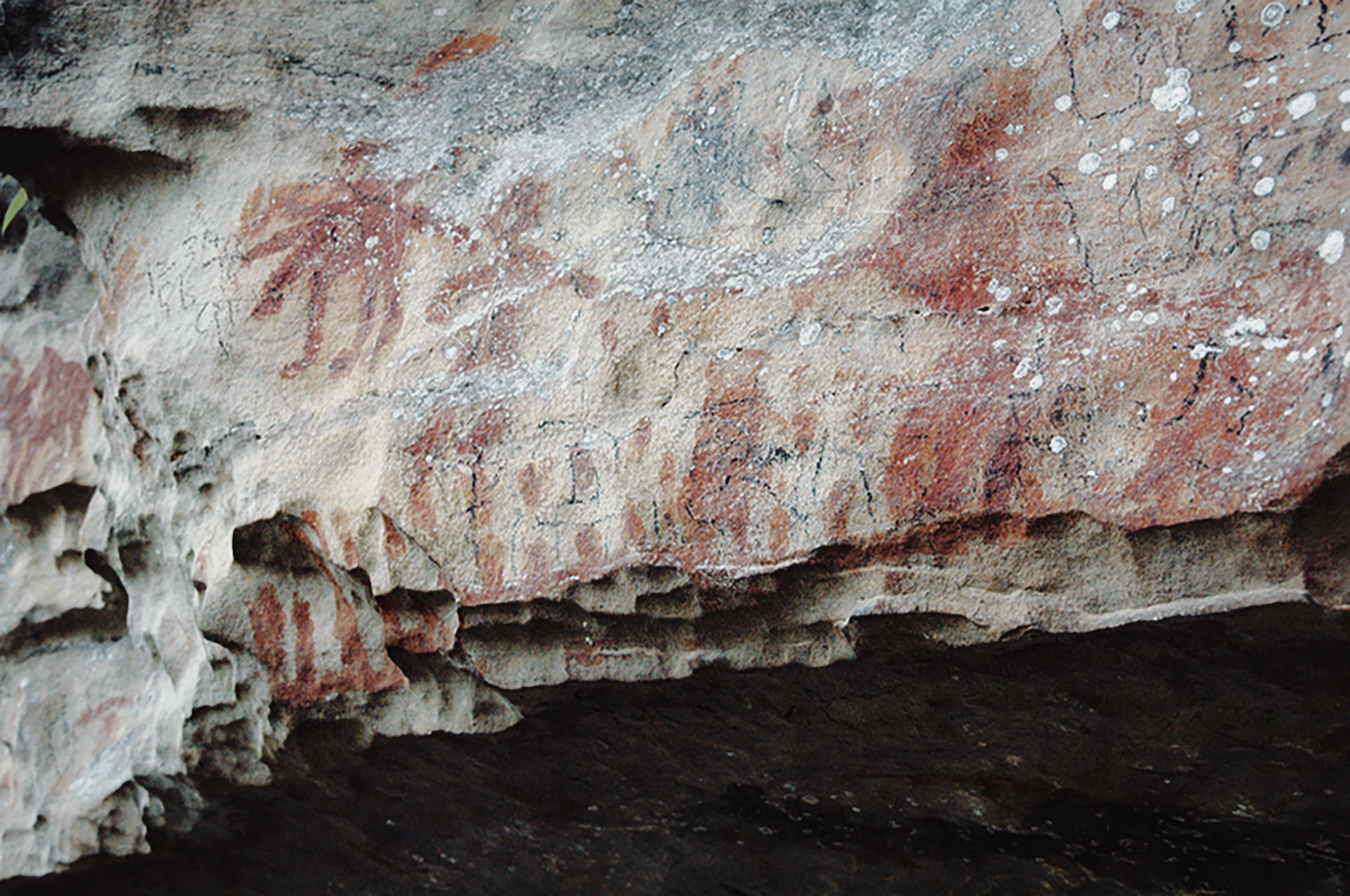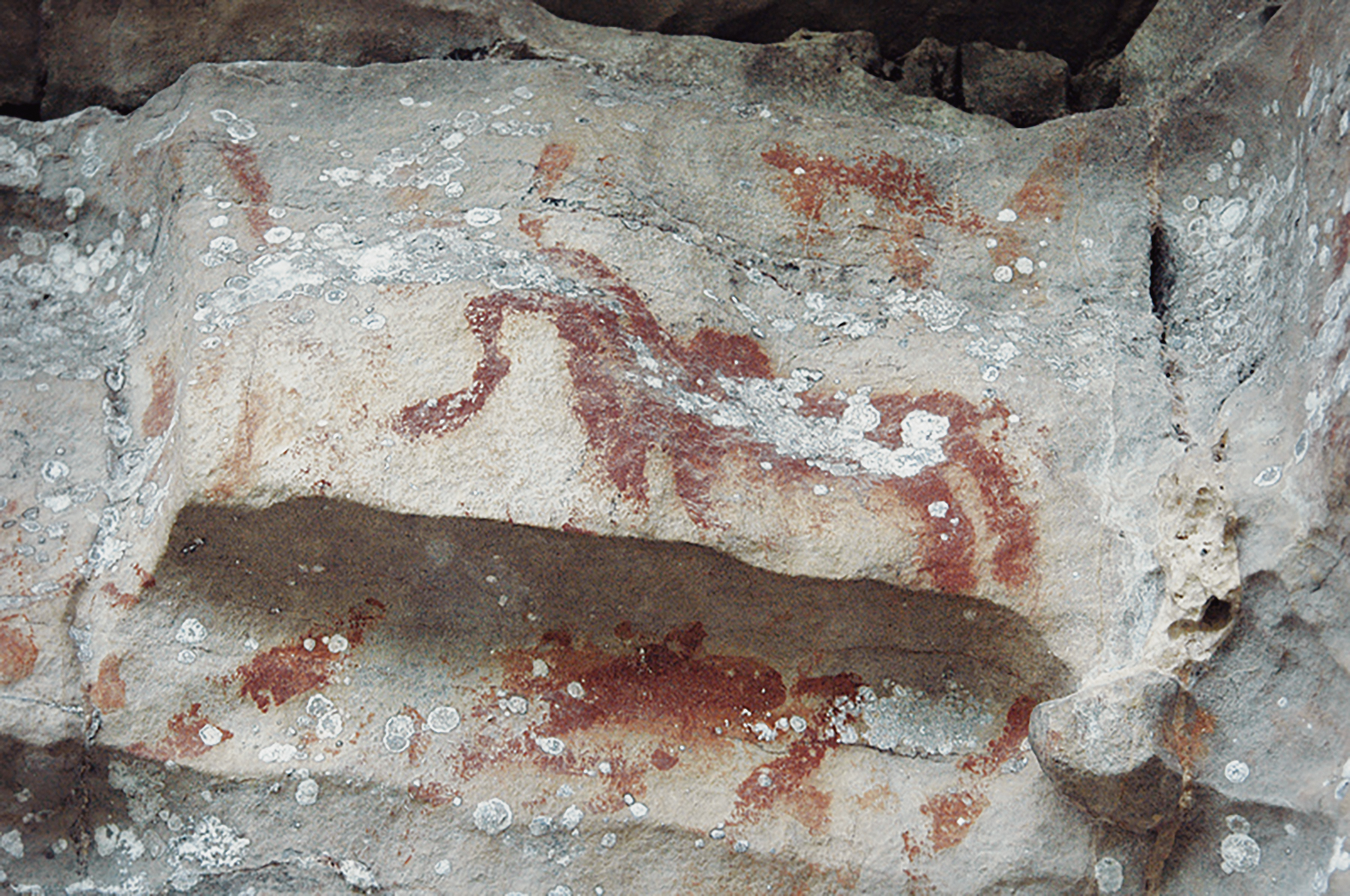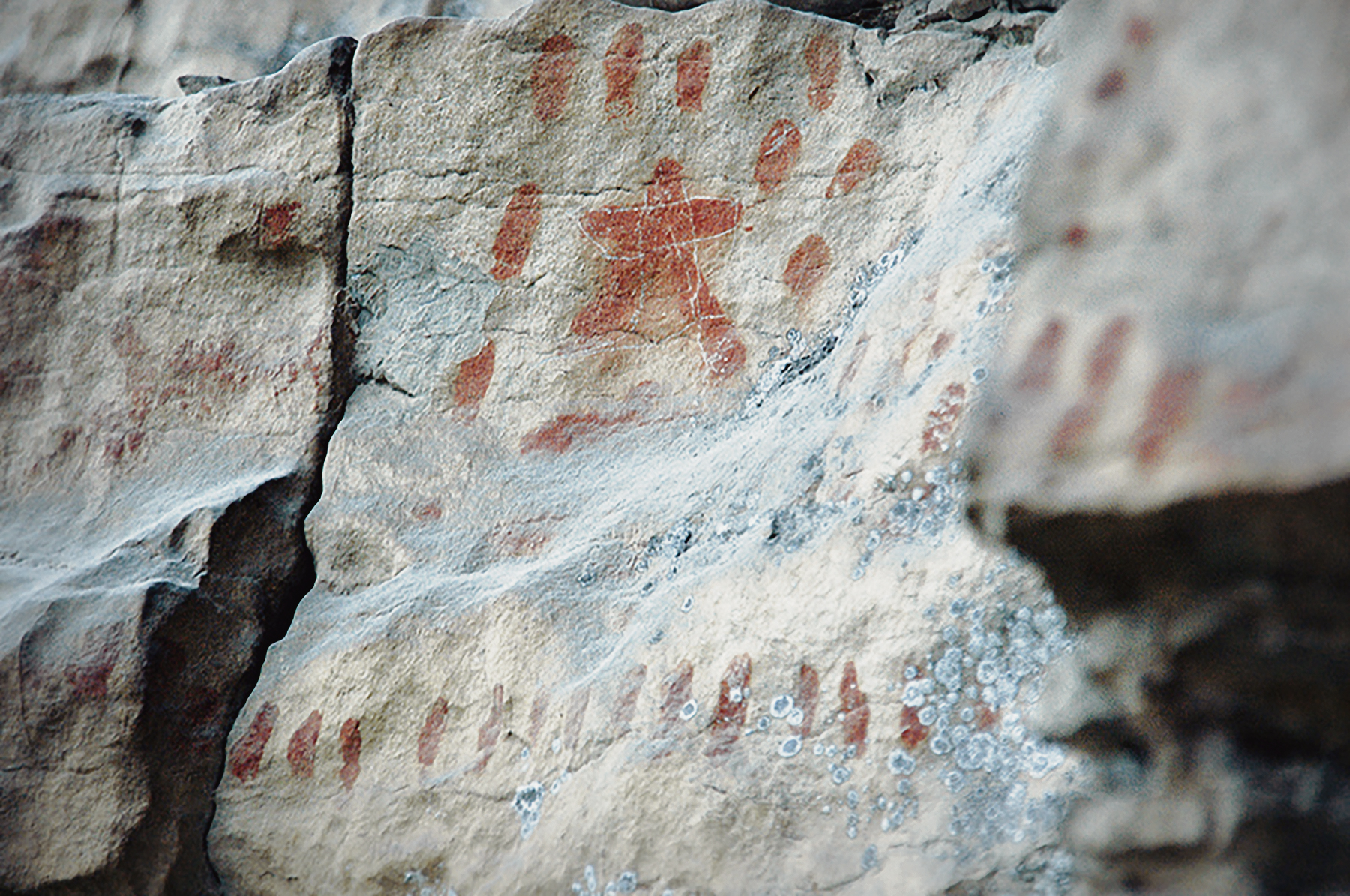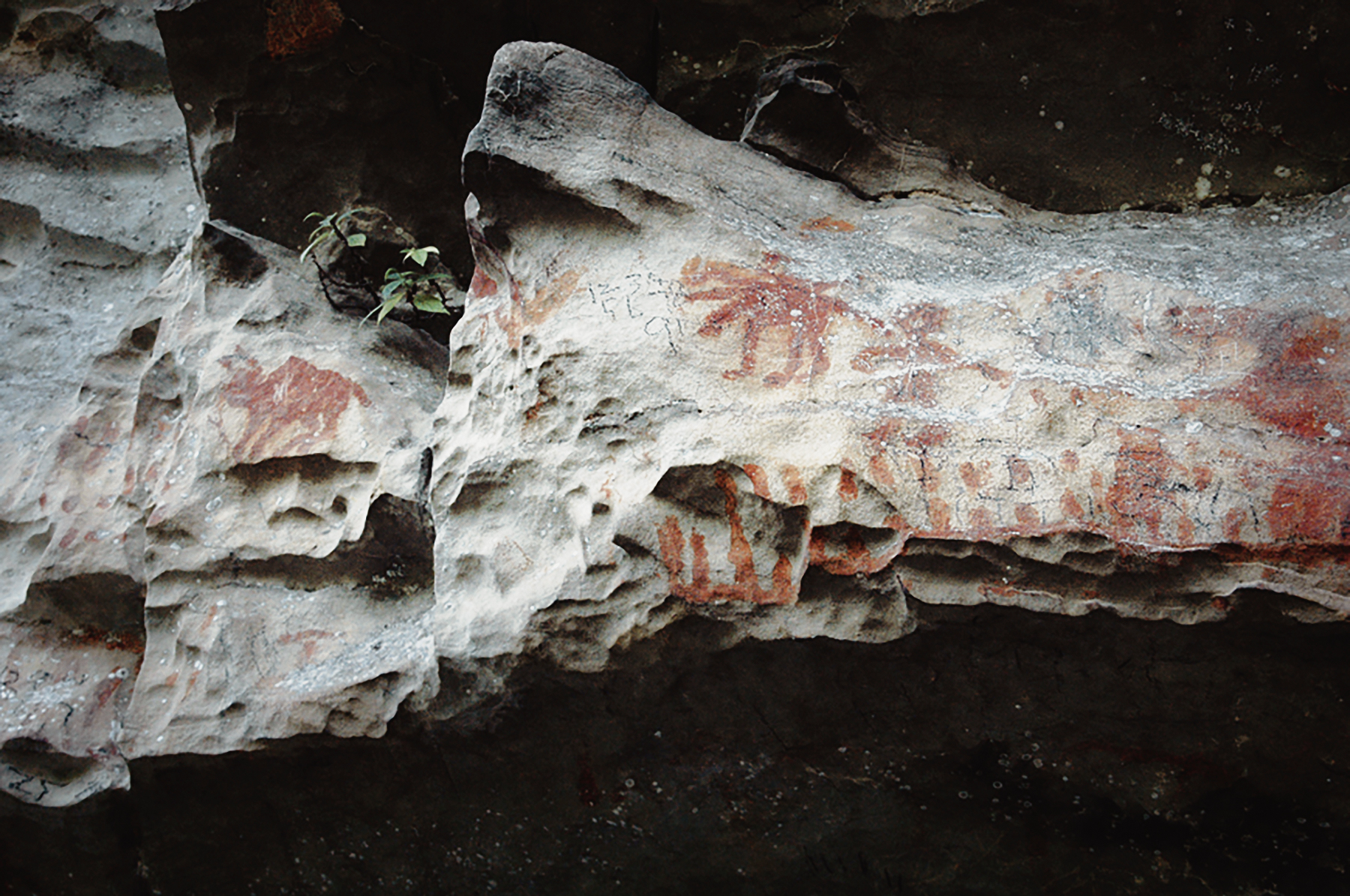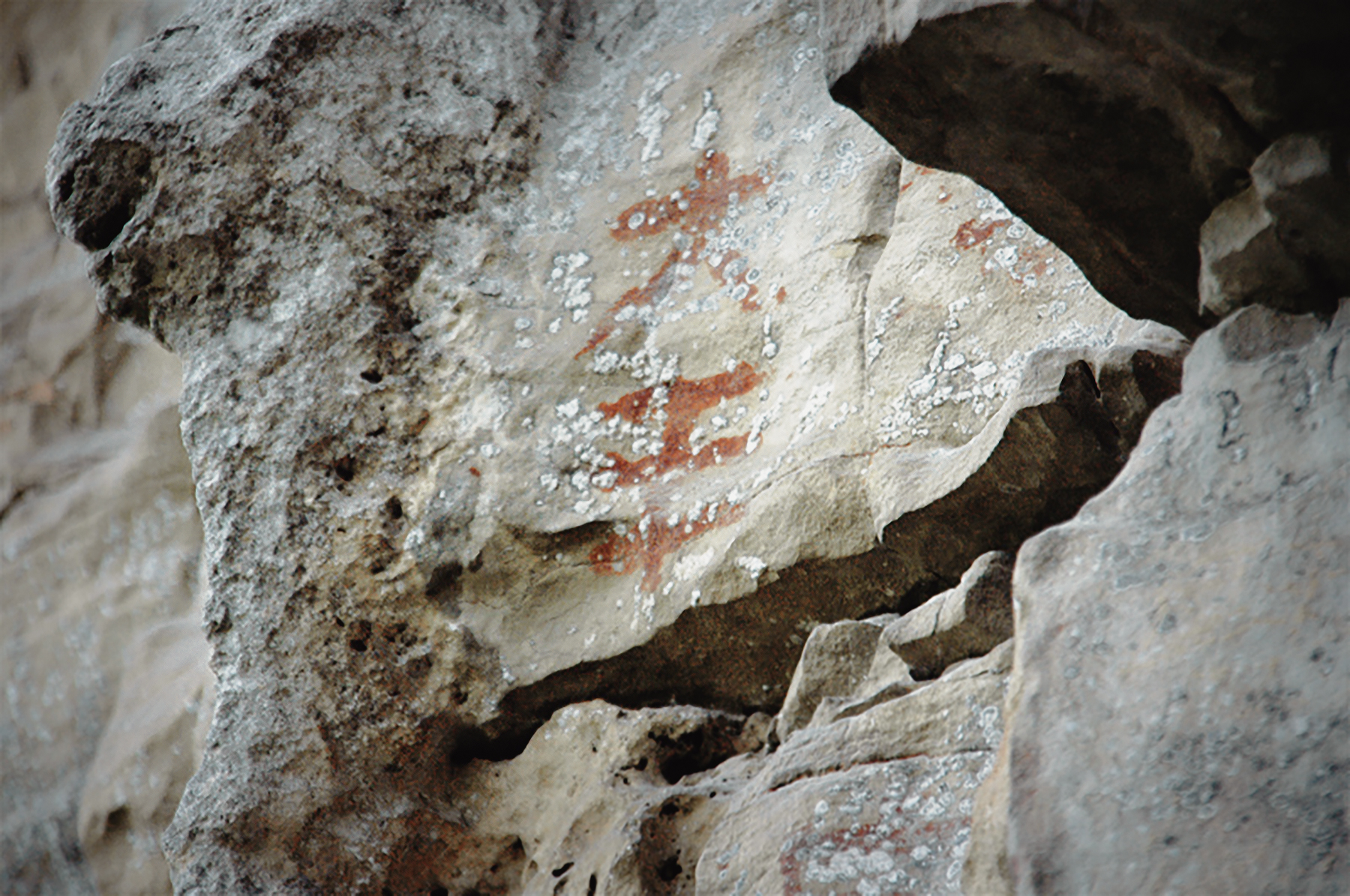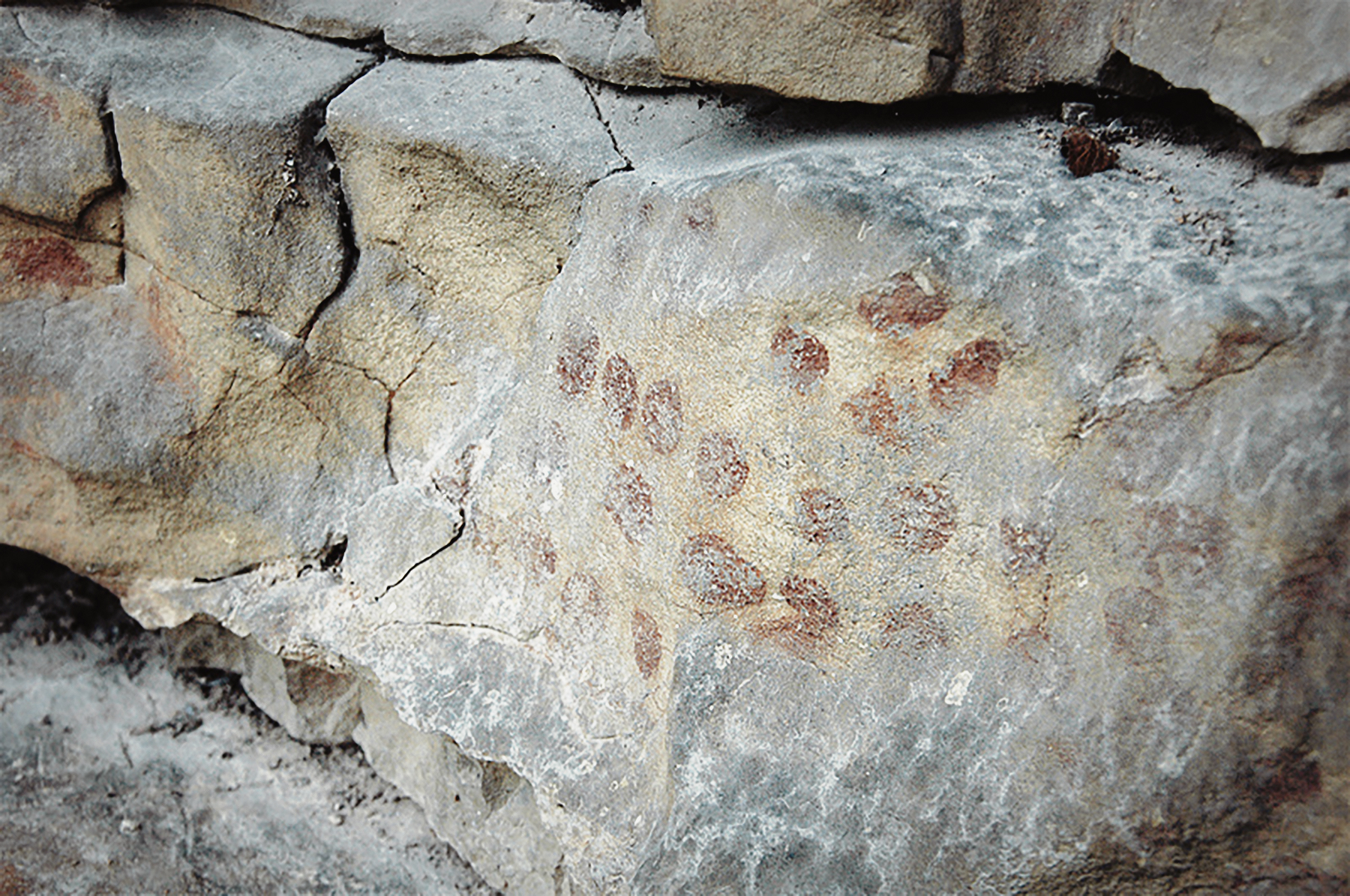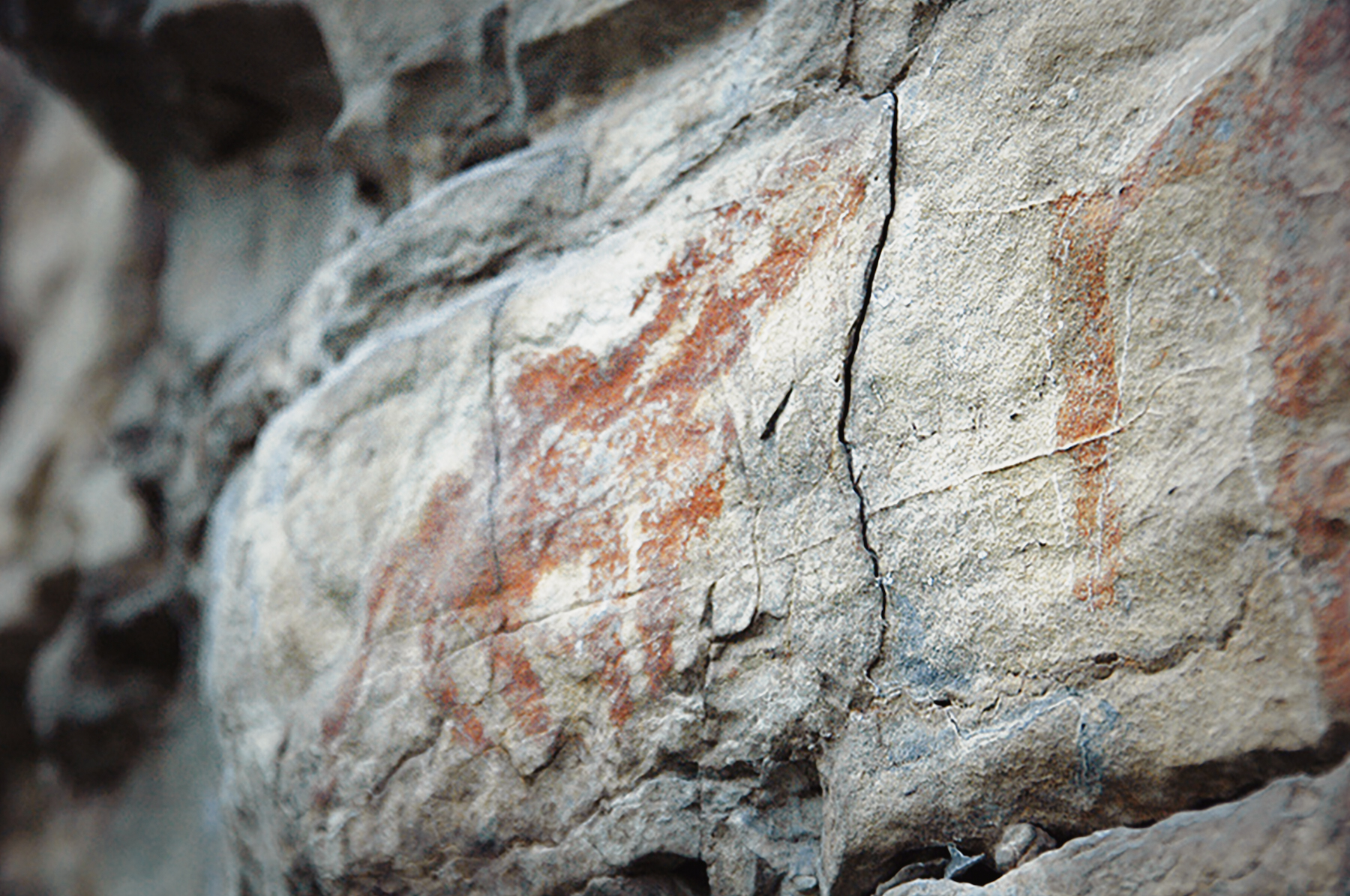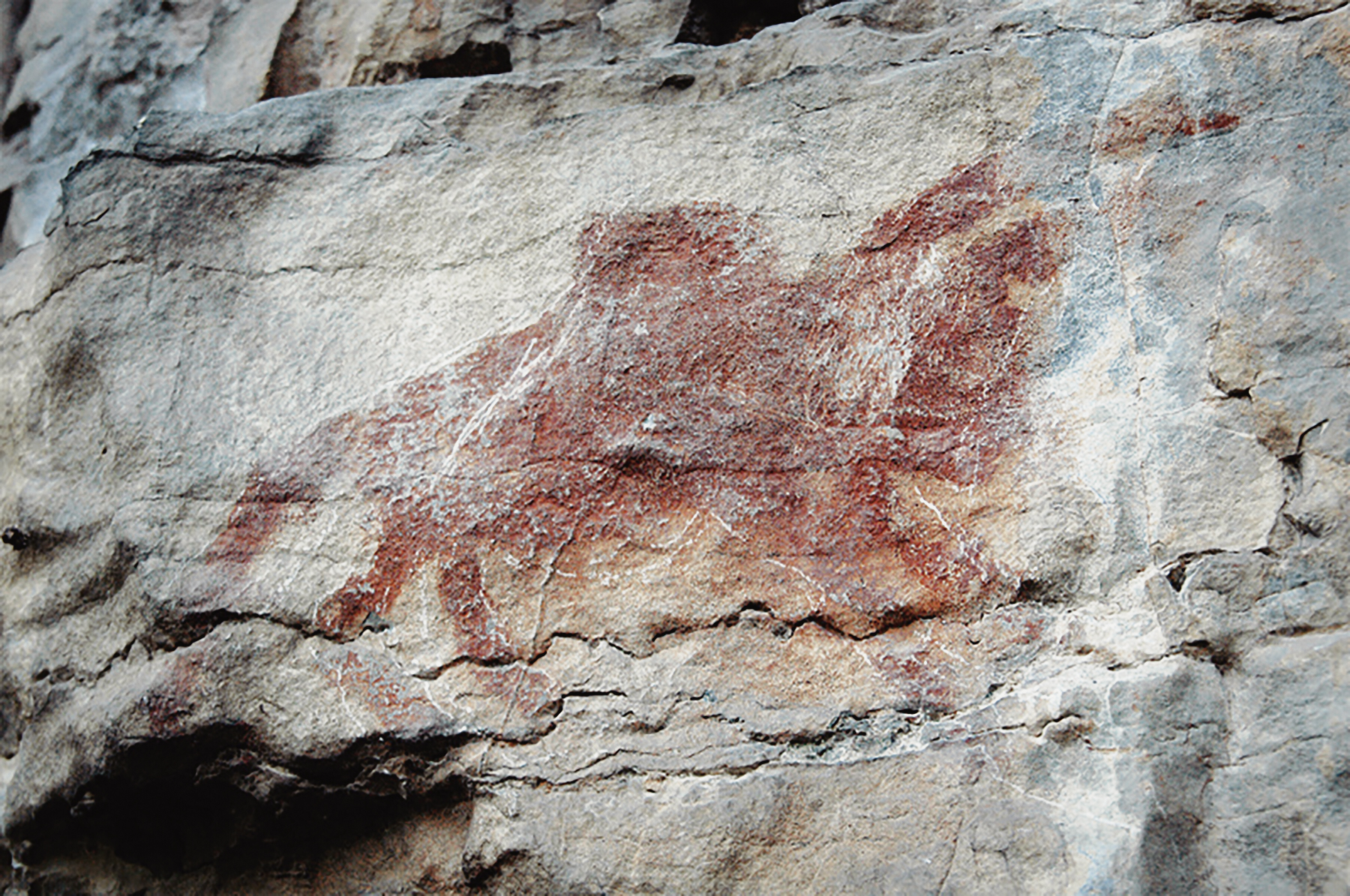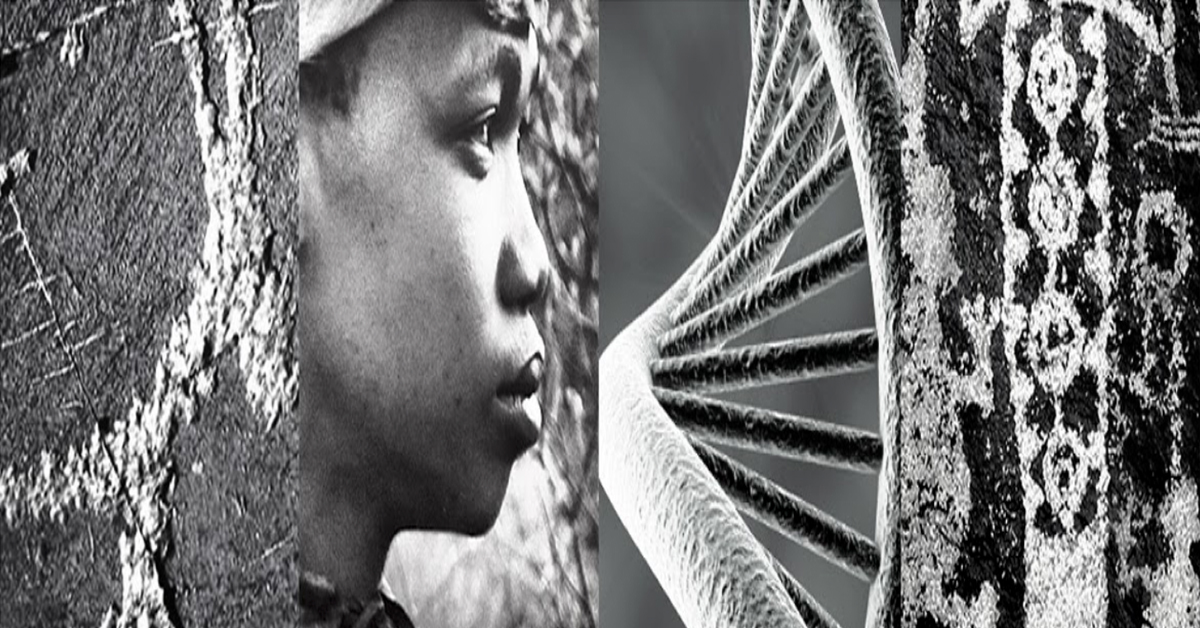
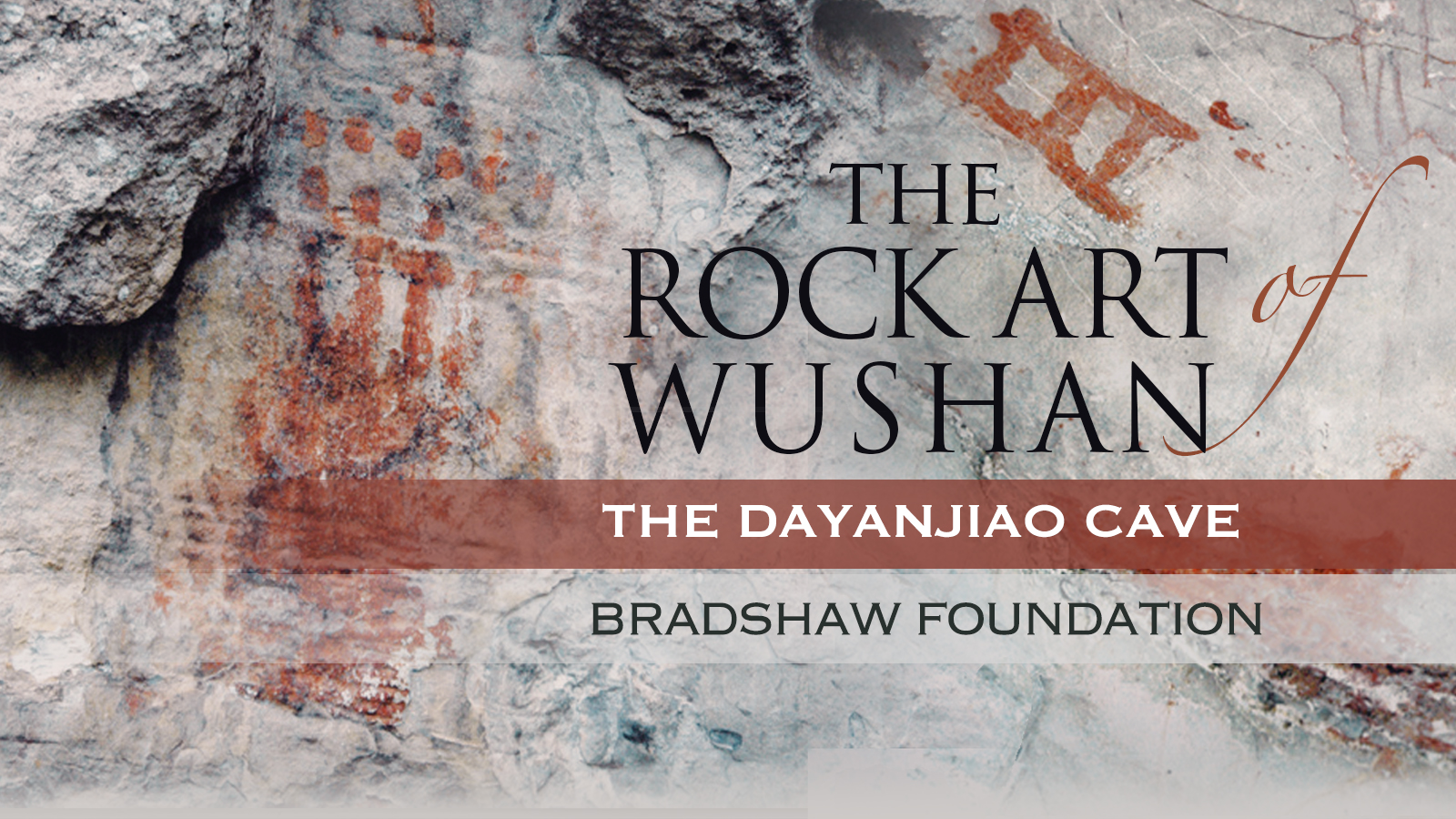
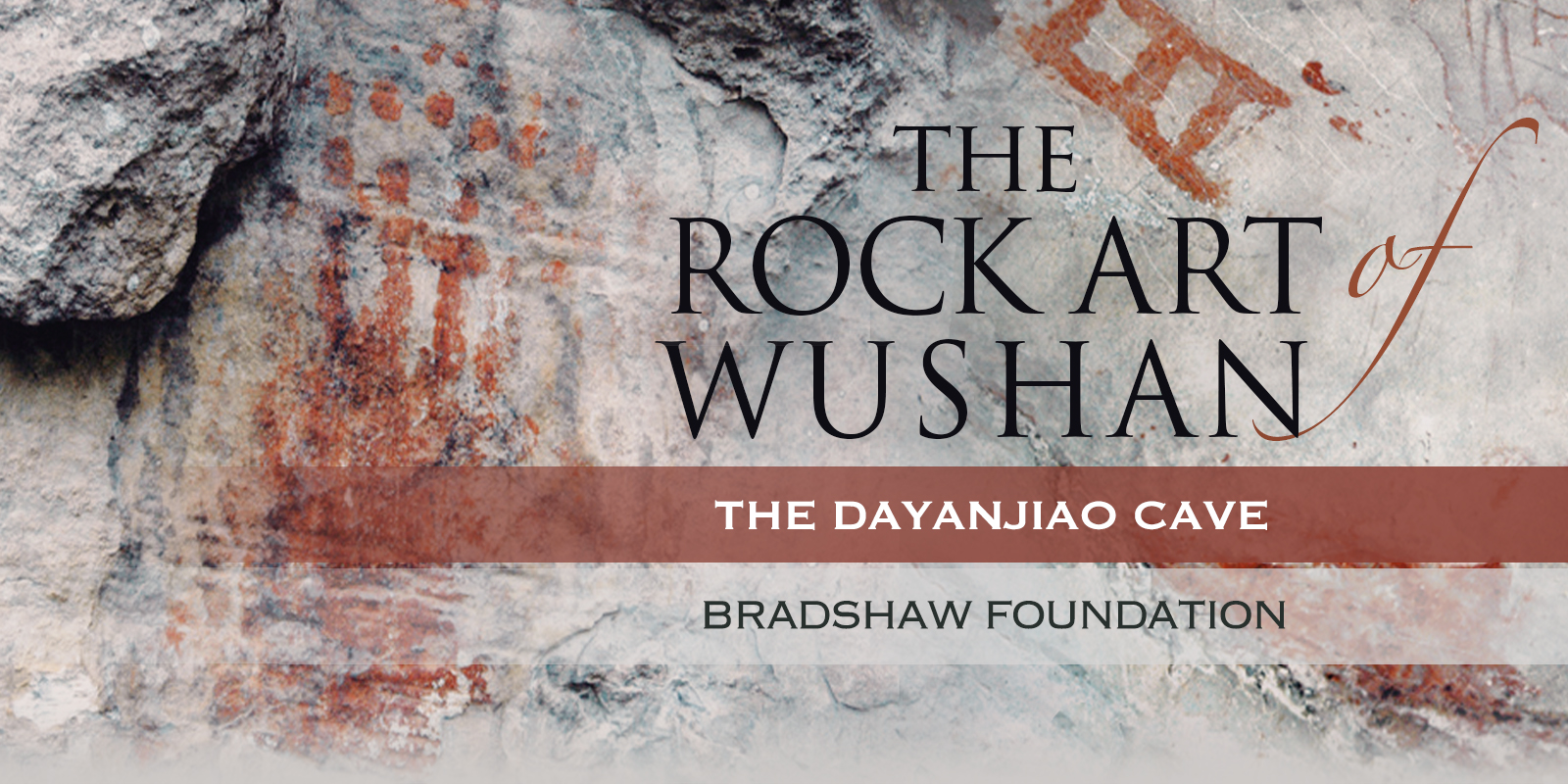
In July 2014 the Bradshaw Foundation team visited the Wushan rock paintings at Dayanjiao Cave, China. This was in conjunction with Bradshaw Foundation attending the 2014 International Federation of Rock Art Organisations [IFRAO] Congress in Guiyang City, Guizhou Province, followed by the participation with the Committee of Peoples' Congress [CPC] and the Chinese Academy of Cultural Heritage in Chongzuo, Guangxi Zhuang Autonomous Region for the international seminar to address the UNESCO World Heritage declaration campaign for the Zuojiang Huashan Rock Art Cultural Landscape. The Bradshaw Foundation team consisted of the Foundation Chairman Damon de Laszlo, Trustee Dr. Jean Clottes, Advisor Dr. Meenakshi Dubey-Pathak, Project Controller Li Hui, and Editor Peter Robinson.
Following the IFRAO conference and the Chongzuo seminar, Dr. Jean Clottes, Dr. Meenakshi Dubey-Pathak, and Peter Robinson, with guides from the Guizhou Provincial Institute of Archaeology, travelled on to visit the Wushan rock art site.
Dayanjiao Cave is located about 30 miles east of Guiyang, near Longli, in the Guizhou Province. The site, situated along the Wushan River, was discovered relatively recently in August 2001. It contains over 500 paintings, which have been dated by the authorities between 500 BC to 200 AD. The images consist of anthropomorths, zoomorphs, finger tip marks and symbols. The overall impression may represent a form of animism - the belief that souls exist not only in humans but also in natural objects such as animals, plants, rocks and rivers. All the images are monochrome, painted in a redish-brown colour from iron oxide, and represented in two dimensions without a sense of perspective or depth of field. There is no over-painting.
The paintings occupy the natural strata of the rock, never exceeding each rock panel's vertical limit, so the largest painting is approximately 30 cms in height. The finger tips are the smallest of the painted marks.
The site itself possesses a particular 'significance', with a large stream emerging at one point at the base of the cliff. Apart from the panels of rock art, there is a large cupule carved into the rock floor at the cliff base, almost certainly for ritual practice. Indeed, there was possibly evidence of continued ritual practice at the site, with the careful and discreet tying of a red scarf to a conspicuous rock.
Whilst the general condition of the paintings is very good, the protection of the site is minimal. There are several graffiti marks on the rocks and on some of the lower paintings themselves. Some painted panels appear to have fallen to the ground. The area attracts locals for fishing, and a short distance from the site there is a major construction project underway. The site has, however, been documented by the Guizhou Provincial Administration Department of Cultural Relics and the Guizhou Provincial Institute of Archaeology. This will of course have great bearing on the rock art site's future protection and preservation.
→ Subscribe free to the Bradshaw Foundation YouTube Channel
→ China Rock Art Archive
→ The Rock Art of Huashan, China - UNESCO World Heritage Site
→ Rock Art of China's Helan Mountains
→ Yinchuan World Rock Art Museum
→ Itinerant Creeds
→ Rock Art of Inner Mongolia & Ningxia
→ The Tiger in Chinese Rock Art
→ Life in Rock Art by Chen Zhao Fu
→ In Search of a Vanishing Civilization
→ The Rock Art of Wushan
→ Ancient Rock Carvings from Dazu
→ Bradshaw Foundation
→ Rock Art Network
